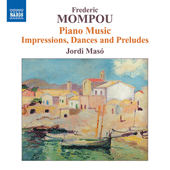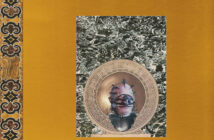
The complete piano music of Catalan composer-pianist Frederic Mompou was previously thought to have covered 4 CDs but Naxos have unearthed another 120+ odd minutes worth of early experiments and unpublished manuscripts. These sorts of posthumous discoveries are usually the reserve of rock titans like Hendrix, their estates “discovering: unreleased recordings and timing their release to keep them afloat over subsequent decades, usually amounting to little but disappointment, unreleased for good reason. In Mompou’s case however, where simplicity and naivety were always central to his work, these early sketches offer valuable insight into his compositional methods and, more importantly, have revealed some beautiful, powerful music.
As pianist Jordi Masao states in the liner notes, “I decided to exclude fragments and unfinished pieces, and to record only the finished works, works that at the time Mompou an extremely self-critical and rigorous composer chose not to make public. All show us a composer who has already created his own idiom, despite his youth, and all were written between 1911 and 1918,the period when Mompou’s first works were published.”
For listeners new to Mompou this volume of his earliest music makes as fine an introduction as any, revealing a composer with a unique voice but one very attuned to his epoch: strongly influenced by the music of France, particularly the more restrained work of mpressionists Ravel and Debussy, but above all Satie. Like Satie, Mompou is attracted to modal melodic developments, unresolved tension, and suspended harmonic patterns, but where Satie’s simplicity is the result of ironic distancing and a fierce and scabrous intelligence, Mompou’s seems to flow more effortlessly, his naive less studied, intentional. Record de platja (Beach Memory) is a fine example, flowing like Satie’s Gymnopedies and displaying a remote sadness that is difficult to categorise. His 5 Impressions explore dance movements akin to Satie’s fondness for cafe music, waltzes and such, with solemn movements relating to Satie’s fascination with Medieval chants. This a fabulous collection recommended as a corrective to those enchanted by the childishly simplistic pseudo-neo-classical peddled by the likes of Dustin O’Halloran and Max Richter.
Joshua Meggitt



